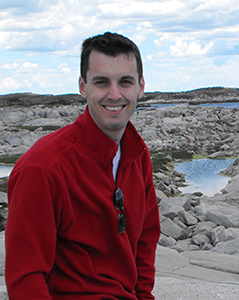 “Physiological Amyloid Aggregation: A Novel Stress Response Pathway”, by Timothy Audas, Assistant Professor, Department of Molecular Biology and Biochemistry, Canada Research Chair-Tier 2: Functional RNA and Cellular Stress, Simon Fraser University
“Physiological Amyloid Aggregation: A Novel Stress Response Pathway”, by Timothy Audas, Assistant Professor, Department of Molecular Biology and Biochemistry, Canada Research Chair-Tier 2: Functional RNA and Cellular Stress, Simon Fraser University
Exposure to harsh environmental conditions requires the widespread re-programming of molecular networks to maintain homeostasis and ensure cell viability. My lab studies a novel post-translational program, which responds to common stressors (i.e., extracellular acidosis, heat shock, and proteotoxic stress) by inducing the macromolecular formation of subnuclear aggregates. Interestingly, these structures possess the same amyloid-like characteristics as neurodegenerative plaques, suggesting that a better understanding of this stress-induced aggregation may shed light on the pathological events associated with common neurological disorders (Alzheimer’s, Parkinson’s and prion-based diseases). Here, I will discuss our work mapping the proteomic composition of these foci and uncovering the molecular mechanisms associated with this form of physiological amyloid aggregation.
Monday, November 26th, 2018 at 3:00 pm, LSC#3, 2350 Health Sciences Mall, UBC
Host Dr. Cristian Kastrup